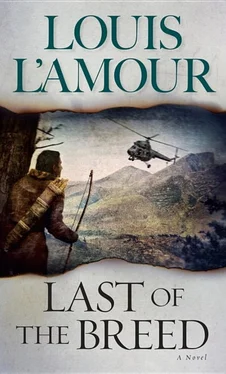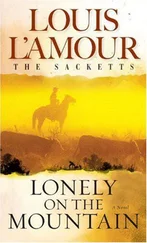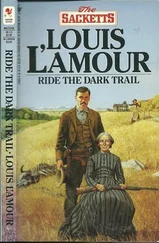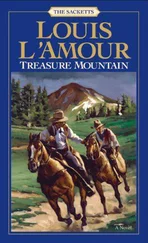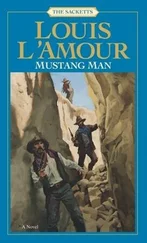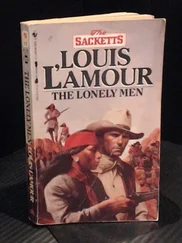Louis L'Amour - Last of the Breed
Здесь есть возможность читать онлайн «Louis L'Amour - Last of the Breed» весь текст электронной книги совершенно бесплатно (целиком полную версию без сокращений). В некоторых случаях можно слушать аудио, скачать через торрент в формате fb2 и присутствует краткое содержание. Город: New York, Год выпуска: 2010, ISBN: 2010, Издательство: Random House Publishing Group, Жанр: Триллер, Историческая проза, Приключения про индейцев, на английском языке. Описание произведения, (предисловие) а так же отзывы посетителей доступны на портале библиотеки ЛибКат.
- Название:Last of the Breed
- Автор:
- Издательство:Random House Publishing Group
- Жанр:
- Год:2010
- Город:New York
- ISBN:978-0-553-89935-1
- Рейтинг книги:3 / 5. Голосов: 1
-
Избранное:Добавить в избранное
- Отзывы:
-
Ваша оценка:
- 60
- 1
- 2
- 3
- 4
- 5
Last of the Breed: краткое содержание, описание и аннотация
Предлагаем к чтению аннотацию, описание, краткое содержание или предисловие (зависит от того, что написал сам автор книги «Last of the Breed»). Если вы не нашли необходимую информацию о книге — напишите в комментариях, мы постараемся отыскать её.
Last of the Breed — читать онлайн бесплатно полную книгу (весь текст) целиком
Ниже представлен текст книги, разбитый по страницам. Система сохранения места последней прочитанной страницы, позволяет с удобством читать онлайн бесплатно книгу «Last of the Breed», без необходимости каждый раз заново искать на чём Вы остановились. Поставьте закладку, и сможете в любой момент перейти на страницу, на которой закончили чтение.
Интервал:
Закладка:
When morning came again, he arose and walked upon the mountain, and the ghosts of Red Cloud and Gall walked beside him. Perhaps the ghosts of even older Indians were there also, those who first followed this same trail to America, following the game out of Asia and into what we foolishly call the New World.
New it was to the first Europeans, but an old, old world to others who had come before, and the trails they had followed were ancient trails, worn deep in the forest, deep in the tundra.
Joe Mack, an officer and a gentleman, was once more the savage his ancestors had been, including that noble Scotsman whose ancestors had bloodied their claymores in the flesh of enemy clansmen.
When the evening came he descended to a small stream and slew a reindeer that had come to drink. In the chill of evening he skinned out the beast, chose the cuts of meat, and roasted them over a fire. Other meat he cut into strips as his family had done and dried them over a small fire, while far into the cold night he scraped the staked-out hide and cut the sinews from the reindeer’s shoulders to make yet another, and better, bowstring.
Over his small fire, sheltered by rocks and trees so that no glimmer escaped, he muttered the songs of his people, red and white, pausing only from time to time to listen.
The wind was rising, the wind was cold. The stars were very bright, and in the north there was a hint of the northern lights high in the sky. The wind moaned in the stone pine thickets, rustling the leaves of the aspen just below. Old ghosts walked the night, peering as he did into the small dancing flame. The fire was scarcely enough to warm him, yet the flickering flames spoke to him in the poetry of his people.
Somewhere out in the darkness something moved, something other than the wind, something huge and ominous. “Old Bear,” Joe Mack spoke aloud, “go back from where you came. I want your meat, your hide, and your fat, but not tonight.
“Go back, Old Bear, and tell your cubs that tonight you saw a Sioux warrior and he let you live because he had killed enough for the day.”
He awakened to a cold gray morning and stirred his dull ashes to life, rubbing his muscles to restore circulation. The wind that had moaned the long night through moaned still, and southward ran the streams, hurrying their waters away to a warmer land.
“Be warm, my body,” Joe Mack said, “you will suffer worse than this!”
He folded his reindeer hide and gathered his bow and arrows.
The shoes on his feet were worn and torn by the rocks of the trail. “Tonight,” he told himself, “I will make moccasins.”
Chapter 8
That evening, spreading out the reindeer hide, he drew a tracing of each foot. Allowing for the sides, he carefully cut out the selected sections. Bringing up the two sides, he used thin strips to stitch them together at the heel and then at the toe. After trying them on, he made holes for the laces of rawhide.
A hide such as he had before him would easily make nine pair of moccasins. He made only four pair, knowing they would quickly wear out but needing the remainder of the hide for rawhide strings.
For cold weather he would need much better footwear, but there would be time for that later. Moccasins such as these, made from poorly treated skins, would not last long, but for the present they must do. The hide he had used had not been well prepared because of the lack of time and the necessity for travel. Made from a properly treated hide, the moccasins would last much longer.
In the morning, the air was clear and cold. From where he sat his eyes could sweep a broad section of the country. It was forest land, broken by low, raw-backed mountains and wide stretches of marsh. Because of the marsh, travel would be channeled to some degree, so he must move with even greater care.
Joe Mack had discarded his spear, keeping the bow and his quiver of arrows, as well as his sling and a small pouch of stones of a proper size. The knife he had stolen was a good one.
Deliberately, he had kept to the high country, holding to the forest’s edge at timberline. Rarely did he find tracks of humans, yet as he moved he had grown increasingly aware that if he hoped to survive the winter he might have to work his way further south, as well as east. To the south lay the Amur region, where there would be more game but also a greater risk of discovery.
It was midday before he moved, but first he buried the worn-out soles of his boots and their heels. Their discovery might indicate his presence.
To the east was the Olekma, a wide river. Yakov had said crossing might be dangerous, but cross he must.
According to the map Yakov had drawn in the clay the river, flowing at this point from south to north, lay directly before him. Somewhere further south the Olekma took a decided bend toward the west, gaining in width.
Yakov puzzled him. Where was he going, armed as he was? Was there armed anti-Soviet resistance in Siberia? He doubted it. Or was he a thief, associated with a gang of thieves? There had been robberies in the Soviet Union, some of them quite dramatic, but beyond an occasional article printed in their papers and copied in American or European papers, or information gleaned from reports of trials, he knew nothing.
He kept to the cover of the trees. The earth was covered with needles from the pines, and was soft underfoot. When he came within sight of the Olekma, from a high point among the trees he studied what he could see of the stream.
Almost at once he heard the distant mutter of an engine, and then a steam launch came within sight. It was headed upstream, and it carried at least a dozen soldiers.
Searching for him? But how could they know where he was? Had he somehow failed to conceal his presence? Or was this a blanket search across a wide area? Even as he watched, the boat veered in toward the shore. He waited, then watched the soldiers disembark. At once they began making camp.
It was warm in the sunshine, and Joe Mack sat watching the movements in the growing camp. A dozen soldiers — he counted them again — and an officer, perhaps a noncommissioned officer. He could see the sun glint from their weapons. If they were not hunting him, they were certainly hunting somebody or something.
The steamboat, not over forty feet long, had tied up at the bank. It was too far away for him to make out details, but he had the impression that it was old, probably a boat long in use on the river. He should be moving on, but he hoped to get some idea of their direction. Yet once they were under cover of the forest, he would be unable to follow their progress.
Rising and keeping under the trees, he started north along the face of the mountain. Below him and not far from where the soldiers had camped, two streams entered the Olekma, one from either side. The wind was cold and he was glad when he dipped deeper into the forest and away from it. He weaved among the trees, careful to break no branches and leave no obvious sign. His soft moccasins made almost no impression on the needles underfoot.
What awaited him beyond the Olekma he did not know, yet slowly things forgotten were returning to mind — from books he had read long ago and Army orientation lectures.
How to cross the Olekma?
Finding a game trail, he followed it along the mountainside, pausing from time to time to listen. He heard nothing.
When he had walked for what he believed was over two miles he paused to rest and to listen. As he waited, he chewed on some of the dried mutton from the mountain sheep.
If that group of soldiers was hunting him there would be others. Somehow he had given away his presence here, or he had been seen.
The river would be watched. Crossing the Olekma would not be as easy as crossing the Kalar.
Читать дальшеИнтервал:
Закладка:
Похожие книги на «Last of the Breed»
Представляем Вашему вниманию похожие книги на «Last of the Breed» списком для выбора. Мы отобрали схожую по названию и смыслу литературу в надежде предоставить читателям больше вариантов отыскать новые, интересные, ещё непрочитанные произведения.
Обсуждение, отзывы о книге «Last of the Breed» и просто собственные мнения читателей. Оставьте ваши комментарии, напишите, что Вы думаете о произведении, его смысле или главных героях. Укажите что конкретно понравилось, а что нет, и почему Вы так считаете.
